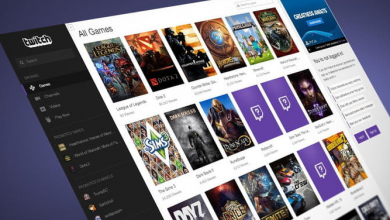Amazing Tech: Powerful Digital Tools for Businesses
You can have tools to protect your business assets

Survival in today’s digital environment means using various digital tools for business. Using technology in business processes ensures growth and sees that you do not spend valuable time on routine tasks that you can automate now.
You can have tools to protect your business assets, collaborate with employees, and communicate with your current and potential customers. Digital tools are vital today, as more companies use remote work systems. You need several tools to harness the chances for growth, integration, and success.
Digital tools for business
Your choice of digital tools to use will depend on the type of business you have. According to business experts, you can categorize business tools as follows:
- Web presence– mobile apps, websites, and online directory listings
- Social media– for marketing, sales, customer engagement, information
- Data analytics– for informed business decisions and customer insights
- Online scheduling and eCommerce– manage capability for online transactions and product deliveries
- Online advertising– search engine optimization, search engine marketing, social media advertising, ads on websites
- Internal productivity tools– video conferencing, cloud-based applications, social networks
1. Communication tools
From the categories above, web presence, social media, and online advertising are just a few tools you can use for communication. Ensure that you are ADA-compliant by having content that people with hearing and visual impairments can access easily. For example, you can add screen readers to your website to help the visually impaired. A voice transcription tool can help people who are deaf and hard of hearing access video content. Transcripts can help improve your search engine page rankings as search engine bots can crawl them.
2. Project management tools
With remote working systems getting more popular because of the health crisis, project management tools are an effective means for remote workers to collaborate on projects, keep track of projects’ progress, and monitor deliverables. In addition, communication can be constant, as project management tools have different features for team members to stay in touch.
3. Customer management system
Small businesses can use a customer management system (CMS). With a CMS, it is easier to track the relationships you have built with your customers. For example, you can monitor how long they have been patronizing your products, their visits to your website, and whether they continue to shop from your store or fill out order forms but not continue with the purchase. You can then communicate with them and let them know about new products, discounts, sales, promotions, or say hello.
4. Social media management tool
It’s a challenge for a small business to monitor social media posts and activities in relevant venues. When you utilize social media, you should be active, as your presence will boost brand awareness. But it can be a full-time job to create posts, engage with the users, respond to feedback and queries, and ensure that your information is up-to-date. So instead of tackling the enormous task, look for a social media management tool that will schedule posts, engage and interact with users, monitor feeds, and see analytics, all in one place.
You do not need all the digital tools for business in your arsenal. You need those that will improve your daily operations, connect with your remote workers, and communicate with your customers. You can add more tools as your business grows.




